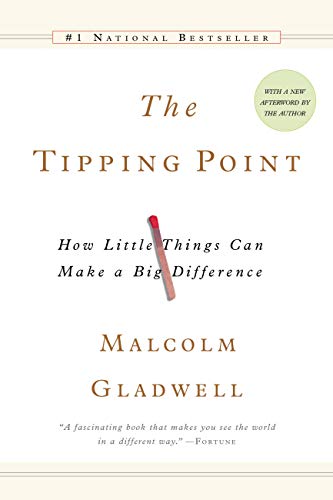
About
Title: The Tipping Point Authors: Malcolm Gladwell Category:supplementals Number of Highlights: 10 Date: 2023-12-08 Last Highlighted: **
Highlights
Six degrees of separation doesn’t mean that everyone is linked to everyone else in just six steps. It means that a very small number of people are linked to everyone else in a few steps, and the rest of us are linked to the world through those special few.
Tags:favorite,algorithm,connection
The Stickiness Factor says that there are specific ways of making a contagious message memorable; there are relatively simple changes in the presentation and structuring of information that can make a big difference in how much of an impact it makes.
Broken Windows theory and the Power of Context are one and the same. They are both based on the premise that an epidemic can be reversed, can be tipped, by tinkering with the smallest details of the immediate environment.
Tags:epidemics,environment
The Law of the Few says that there are exceptional people out there who are capable of starting epidemics. All you have to do is find them. The lesson of stickiness is the same. There is a simple way to package information that, under the right circumstances, can make it irresistible. All you have to do is find it.
In a social epidemic, Mavens are data banks. They provide the message. Connectors are social glue: they spread it. But there is also a select group of people—Salesmen—with the skills to persuade us when we are unconvinced of what we are hearing, and they are as critical to the tipping of word-of-mouth epidemics as the other two groups.
That is the paradox of the epidemic: that in order to create one contagious movement, you often have to create many small movements first.
These three agents of change I call the Law of the Few, the Stickiness Factor, and the Power of Context.
The Power of Context says that human beings are a lot more sensitive to their environment than they may seem.
Tags:perception,environment,cognition
We are actually powerfully influenced by our surroundings, our immediate context, and the personalities of those around us.
When people are in a group, in other words, responsibility for acting is diffused.
Note: Bystander affect